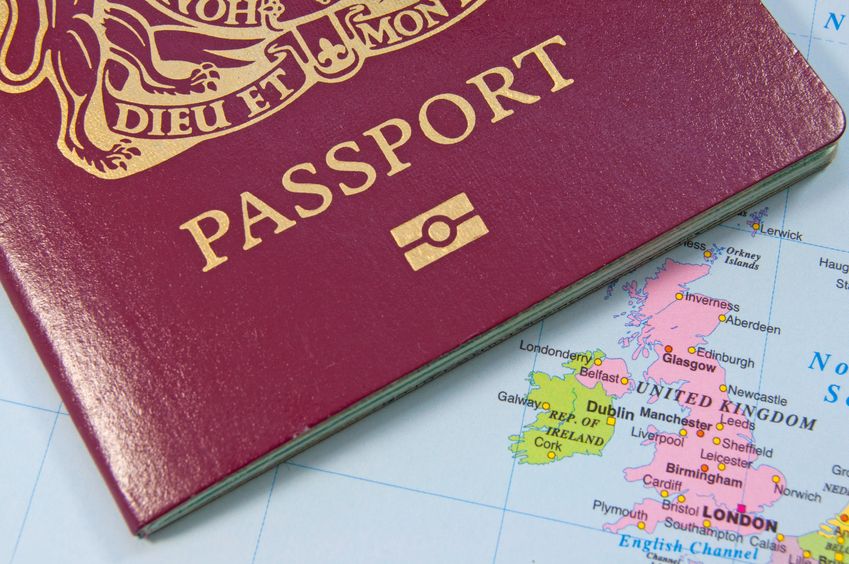
An influential group of MPs have concluded it is not possible to resolve the Irish border question after Brexit, an issue which could severely impact the farming industry on both sides.
The government has told of its wishes to see smooth trade flow between both Northern Ireland and the Republic of Ireland after Brexit, but the panel of MPs on the Committee for Exiting the EU said this is increasingly looking doubtful.
Northern Ireland will be the only UK landmass that will share a land border with an EU country. Both Northern Ireland and the Republic have enjoyed smooth trade for decades.
Ministers have suggested technology could enable a "frictionless border", however, they say it remains "untested" and "speculative".
Despite promises that there will be no hard border after Brexit, the Irish government has nevertheless urged the UK government for a written guarantee that there will be no such thing before agreeing negotiations.
The Ulster Farmers’ Union (UFU) says the movement of goods and access to labour across the border after Brexit are key concerns for farmers and dairy processors.
UFU dairy chairman William Irvine said Northern Ireland’s unique situation and the complexities of what will be a land border between the UK and EU are well recognised.
“A large number of dairy farmers here are members of co-ops in the South. Clearly, there are strong links between farmers here and processors south of the border, and indeed vice versa,” Mr Irvine explained.
“This applies to other sectors as well as dairy, and we were encouraged that the will seems to exist in Brussels for a soft border.”
'Seamless border'
The biggest party in Northern Ireland, the Democratic Unionist Party (DUP), has confirmed that they will try and secure the best Brexit deal possible for local farmers.
DUP MLA William Irwin said the region's farmers "fear" a hard border with the Republic.
He said: “Two of our priorities will be to ensure the continuation of direct payments for farmers and the maintenance of a seamless border on the island of Ireland, from a trading point of view. This will entail trade in both directions.
Mr Irwin continued: “As a party, we are committed to securing the future growth of farming and food in Northern Ireland.”
According to an influential parliamentary committee, farmers in the Republic risk being “decimated” by Brexit because 40% of the nation's agriculture and drinks exports go to the UK.
Indeed, nearly 40 per cent of the UK’s beef exports go to Republic, while 50 per cent of Irish beef exports are marketed in the UK.
In terms of sheep, the fact that over 40 per cent of Northern Ireland’s lambs are processed in the Republic of Ireland and 90 per cent of the UK’s lamb exports are destined for the European market show that there is a lot hanging on achieving a progressive free trade arrangement.
The chairman of the House of Lords committee, Tim Boswell said Northern Ireland must not become the 'collateral damage' of the UK’s departure from the EU.
The committee says the UK and Ireland should be allowed to negotiate a separate deal as quickly as possible to prevent damaging economic fallout that could even put at risk peace in Northern Ireland.
'Profound'
Lord Boswell has said that the impact of Brexit on the Republic of Ireland will be more profound than for any of the other member states and that he is urging the other 27 countries in the European Union to give the country special dispensation to enter talks on a draft bilateral agreement with the UK.
Lord Boswell said: “The burgeoning peace process following the Good Friday Agreement has improved people’s lives right across the island of Ireland.
“That progress has in part been based on the fact that both the UK and the Republic of Ireland are EU Member States, with free movement and trade across an open border. Brexit means that there is now a question mark over these achievements.
“Both the UK and Irish governments desperately want to avoid a return to hard borders. But the Republic of Ireland will remain in the EU, and any agreement to allow an open border to remain will have to be agreed by all the other EU Member States. That’s not a given.
“We need early agreement on all sides that the UK and Ireland should be allowed to reach a draft bilateral agreement, one that protects the unique nature of UK-Irish relations, of Northern Ireland, and of North-South relations on the island of Ireland.”
According to official figures, Northern Ireland is the second poorest region in the UK after Wales, with a GDP per capita 27 per cent lower the UK average. The region has the second lowest productivity levels in the UK and relies more on agriculture than the rest of the UK.
